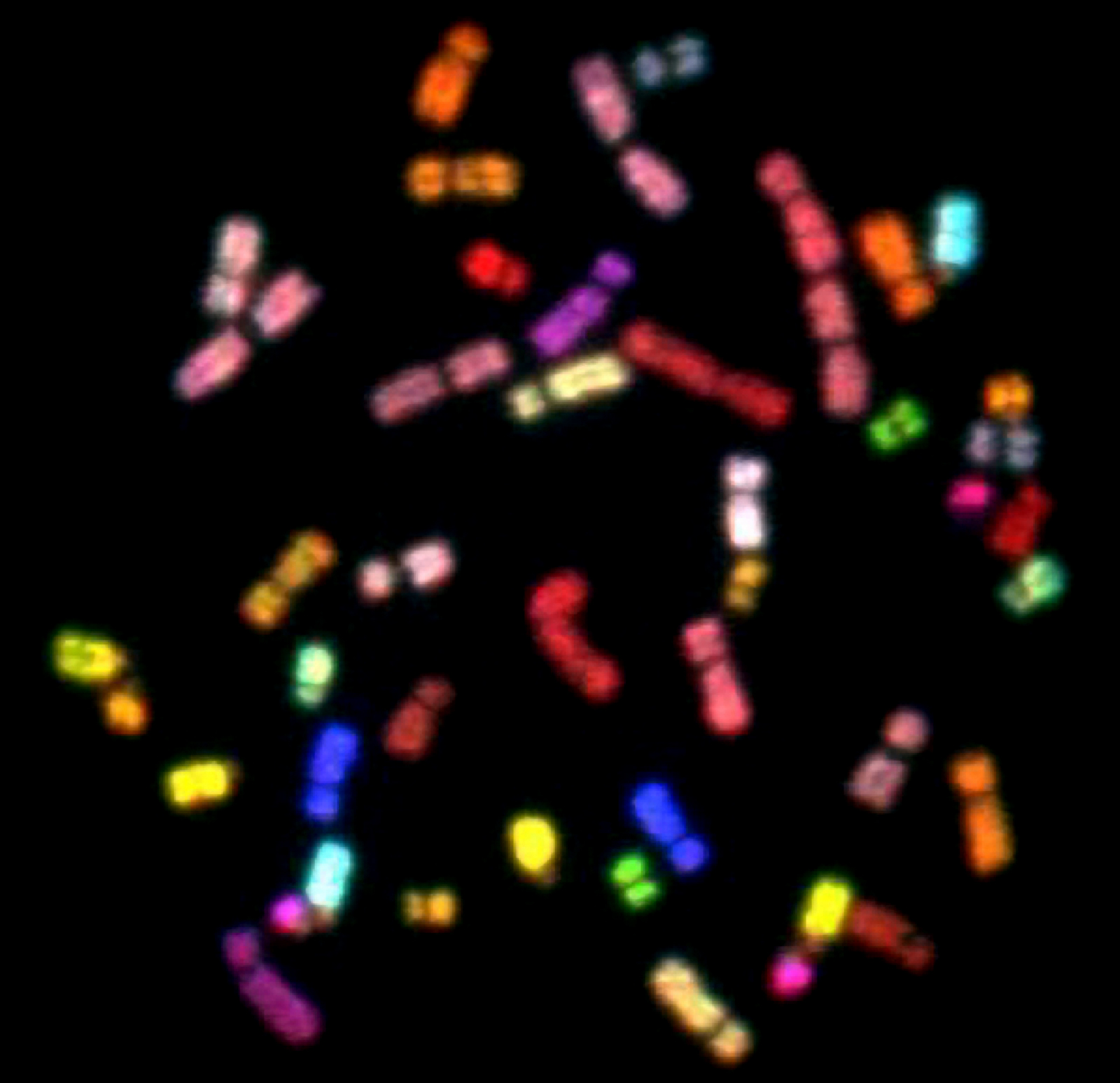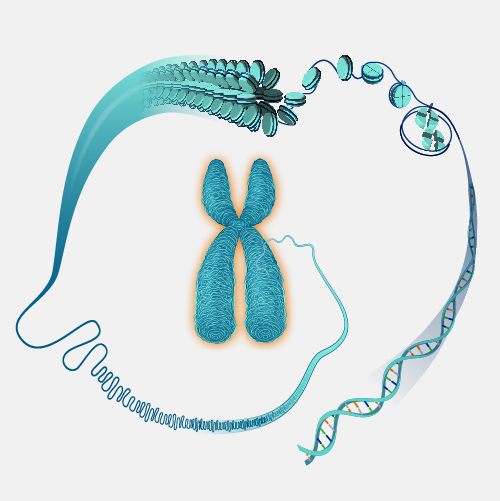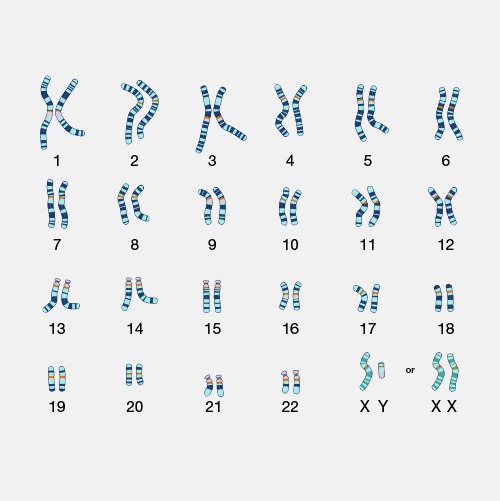Spectral Karyotype (SKY)
Definition
Spectral karyotype (SKY) is a karyotype in which the homologous pairs of chromosomes are manipulated in such a way that they have distinctive colors. The SKY technique makes it easier for scientists to detect chromosomal abnormalities, as compared with a conventional karyotype.

Narration
The SKY refers to spectral karyotyping. A karyotype is essentially a photograph of chromosomes that allow researchers and medical doctors to examine the chromosomes of an individual patient or an individual organism. It's particularly useful for looking for chromosomal abnormalities. The innovation of SKY is that it gives each chromosome a different color, so that it's easy to determine which is Chromosome 1 and which is Chromosome 18, so it's much easier for researchers and clinicians to figure out abnormalities of the chromosomes.

